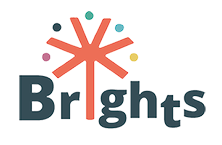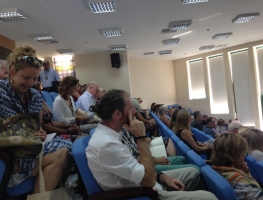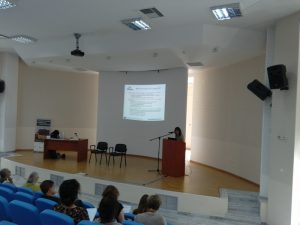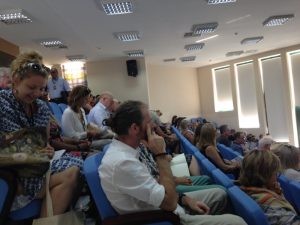The BRIGHTS project was successfully presented at the International Digital Storytelling Conference (DST 2018) on September 21, 2018.
The DST 2018 Conference was under the auspices of the Hellenic National Commission for UNESCO and H.E. the President of the Hellenic Republic Mr. Prokopios Pavlopoulos. The theme of the conference, “Current Trends in Digital Storytelling: Research & Practices”, signifies the transitional phase of Digital Storytelling (DST) towards an establishment community of research and practice, according to the call of papers of the conference.
The rationale of the conference was based on communication, interaction and reflection between experts on DST from all over the world. Its structure functions in three interacting levels: the individual, the thematic community of the working group and, the conference community. Thus, it included: 3 parallel Working Groups (1. DST in Education, 2. DST in Society, 3. Medium and sign in DST), 7 parallel Workshops, a Symposium, Plenaries-Multimodal Communication and, an AGORA session. The conference hosted around 100 participants.
The contribution on BRIGHTS project results was presented under the title “A pathway towards a sustainable future: the Brights approach to Global Citizenship Education using Digital Storytelling” by Maria Aspioti of DAISSy Research Group of Hellenic Open University during the DST in Education Working Group sessions. This paper presented the BRIGHTS needs analysis results, the training methodology (blended training course: MOOC and F2F workshops for educators in formal and non formal education contexts working with young people (13-19 yo) at risk of marginalization and F2F workshops for the students to further produce their own digital stories). The authors stressed the strengths of GCE using DS suggesting the inclusion of this methodology in the curriculum as a best practice for young people to get actively engaged with the values of Global Citizenship Education and realize their global citizen identity developing at the same time the emotional, communicational, intercultural and digital skills of the 21st century (in line with international organizations’ Sustainable Development Goals, the Agenda 2030 and the DigComp Framework of the EE). Moreover, according to the authors, GCE using DST in the curriculum will help young people better face the global challenges in the interconnected, digitalized and rapidly-changing socio-economic global society in a creative, productive and inclusive way. At the end of the presentation the audience was invited to get to know the BRIGHTS European Online Community on GCE and the BRIGHTS MOOC.
Further to the research paper’s presentation in the conference, two of the BRIGHTS national winner digital stories were showed on screen. The audience reflected enthusiastically on the digital stories presented and showed great interest in the overall project.



